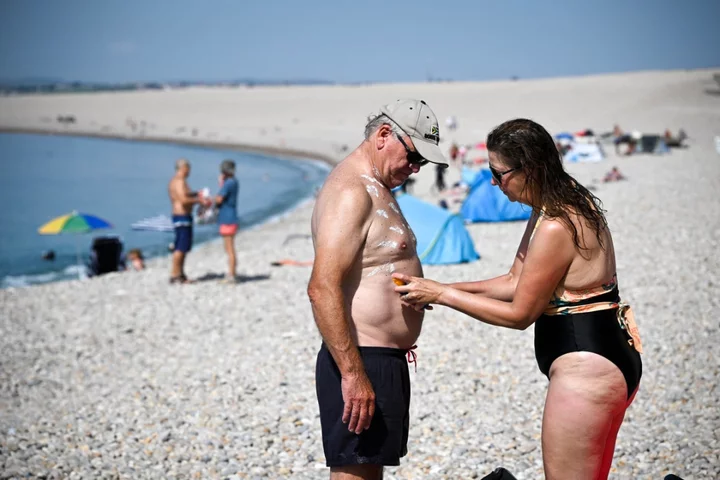Most people do not apply enough sunscreen or wear adequate clothing when out in the sun for too long, according to a new study that warned that the product may be giving them “a false sense of security”. The research, published recently in the journal Cancers, sheds more light on the observation that melanoma and skin cancer rates are rising globally despite a rise in sunscreen usage – an oddity termed the “sunscreen paradox”. “The problem is that people use sunscreen as a ‘permission slip’ to tan. People think they are protected from skin cancer because they are using a product marketed to prevent a condition,” study co-author Ivan Litvinov from McGill University in Canada said. In the research, scientists found that Canadians living in provinces with incidence rates for melanoma – one of the most aggressive forms of skin cancer – were more likely to report using sun protection, more aware of the health risks of sun exposure, and more apt to follow the UV index. Overall, scientists assessed data from 22 focus groups encompassing 95 Atlantic Canada residents. The analysis found that despite reporting more awareness and intent for protection from the sun, people in these provinces received more sun exposure due to warmer temperatures and a tendency to engage in outdoor activities. In another assessment of people in the UK, they found contradicting evidence that sunscreen use was surprisingly linked to an over two-fold risk of developing skin cancer. “These combined findings suggest a sunscreen paradox, whereby individuals with higher levels of sun exposure also tend to use more but not an adequate quantity of sunscreen or other sun-protection measures, providing a false sense of security,” Dr Litvinov explained. Scientists call for new interventions, considering this sunscreen paradox, to address knowledge gaps in sun protection and skin cancer prevention. “Sunscreen is important, but it is also the least effective way to protect your skin when compared to sun protective clothing, rash guards, and sun avoidance. People can and should enjoy the outdoors, but without getting a sunburn or a suntan,” Dr Litvinov added. Read More If being without your phone fills you with dread, you could have nomophobia When do the clocks go back in the UK this year? Nursery places and wraparound childcare plans announced
Most people do not apply enough sunscreen or wear adequate clothing when out in the sun for too long, according to a new study that warned that the product may be giving them “a false sense of security”.
The research, published recently in the journal Cancers, sheds more light on the observation that melanoma and skin cancer rates are rising globally despite a rise in sunscreen usage – an oddity termed the “sunscreen paradox”.
“The problem is that people use sunscreen as a ‘permission slip’ to tan. People think they are protected from skin cancer because they are using a product marketed to prevent a condition,” study co-author Ivan Litvinov from McGill University in Canada said.
In the research, scientists found that Canadians living in provinces with incidence rates for melanoma – one of the most aggressive forms of skin cancer – were more likely to report using sun protection, more aware of the health risks of sun exposure, and more apt to follow the UV index.
Overall, scientists assessed data from 22 focus groups encompassing 95 Atlantic Canada residents.
The analysis found that despite reporting more awareness and intent for protection from the sun, people in these provinces received more sun exposure due to warmer temperatures and a tendency to engage in outdoor activities.
In another assessment of people in the UK, they found contradicting evidence that sunscreen use was surprisingly linked to an over two-fold risk of developing skin cancer.
“These combined findings suggest a sunscreen paradox, whereby individuals with higher levels of sun exposure also tend to use more but not an adequate quantity of sunscreen or other sun-protection measures, providing a false sense of security,” Dr Litvinov explained.
Scientists call for new interventions, considering this sunscreen paradox, to address knowledge gaps in sun protection and skin cancer prevention.
“Sunscreen is important, but it is also the least effective way to protect your skin when compared to sun protective clothing, rash guards, and sun avoidance. People can and should enjoy the outdoors, but without getting a sunburn or a suntan,” Dr Litvinov added.
Read More
If being without your phone fills you with dread, you could have nomophobia
When do the clocks go back in the UK this year?
Nursery places and wraparound childcare plans announced

